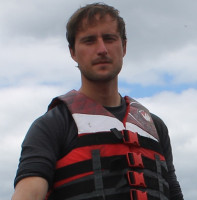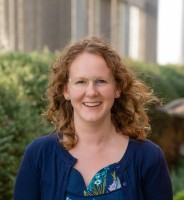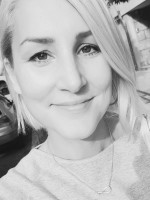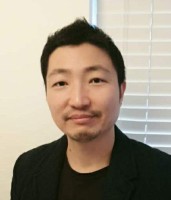Terrestrial Biodiversity
Climate Change
Agriculture, Crops & Soil Health
Carbon Cycle
Climate Adaptation & Resilience
Ecosystem Services
Industries Activities
Post-Doctoral Fellowships
Germany
2016.05.31
From Soil Erosion’s Past Come Clues to Its Future Impact on Climate Change
With the data collected, Dr. Jenny will also explore soil erosion’s impact on the carbon cycle. Carbon is stored in the ground, following decomposition of organic matter, for example. When soil is transported, the carbon it holds may be transferred to lake sediments, or escape into the atmosphere, potentially contributing to climate change. However, little is known of this process and models of the carbon cycle generally neglect the input of erosion and of bodies of water. Dr. Jenny’s goal is to find out whether soil erosion will increase carbon transfer and affect the carbon cycle. “Sediment records from lakes can tell us about the production and emission of carbon from the lake itself into the atmosphere,” Dr. Jenny explains, “but they also tell us how much of that carbon came from the soil. So, we can identify if certain practices like agriculture or forestry are connected to an increased rate of transport of carbon. If so, this would be a factor that is not considered in current carbon cycle models.”
Bringing together environmental and geosciences will help him create the tools needed to better assess the carbon cycle on multiple scales. Ultimately, Dr. Jenny will take the connections he uncovers between soil loss and carbon storage and integrate them into ecosystem models. The project will also help identify the main sources of soil erosion, a first step toward protecting productive croplands and minimizing the impact on the carbon cycle. The extreme weather expected with climate change, like torrential rain and droughts, will exacerbate soil erosion. Meanwhile, the global food demand is expected to double over the next 50 years. No country can afford to look the other way and Dr. Jenny’s research may provide the tools to find solutions.
Scientific title : Reconstructing Rates Of Changes In Global Soil Erosion And Effects On Carbon Cycle
To add or modify information on this page, please contact us at the following address: community.research@axa.com

Jean-Philippe
JENNY
Institution
Max Planck Institute for Biogeochemistry
Country
Germany
Nationality
French
Related articles
Sustainable Living & City
Climate Change
Climate Adaptation & Resilience
Urban Planning
Resilient Infrastructure & Safety
Environmental Justice
Post-Doctoral Fellowship
Australia
2023.06.20
Indicators for Climate Resilient City Planning
Expected start date:June-2023 Cities contribute enormously to global greenhouse emissions and are key drivers of climate change. By the same... Read more

Melanie
LOWE

